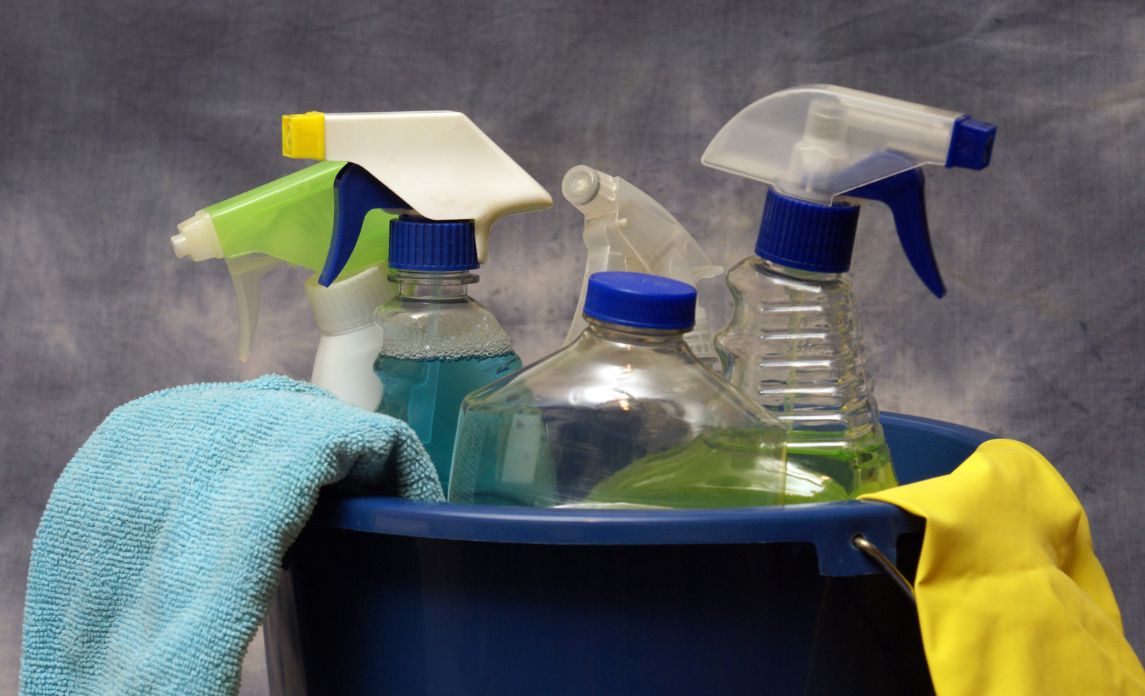In today’s world, maintaining a clean and sanitized environment is more important than ever. Whether you’re cleaning a small apartment or a large office space, the use of cleaning chemicals is often unavoidable. However, these substances can post significant environmental and health risks if not disposed of properly. At Crewcare, we prioritise not only providing outstanding cleaning services but also ensuring that our practices are eco-friendly and safe. This guide aims to educate our clients and the public on the proper disposal of cleaning chemicals.
Why proper disposal matters
Cleaning chemicals, such as bleach, ammonia, and various detergents, contain compounds that can be harmful to both human health and the environment. Improper disposal can lead to:
- Water pollution: Chemicals can seep into waterways, harming aquatic life and contaminating drinking water.
- Soil contamination: toxic substances can degrade soil quality, affecting plant life and agriculture.
- Health hazards: exposure to improperly disposed chemicals can cause respiratory issues, skin irritation, and other health problems.
- Waste management issues: incorrect disposal can complicate waste management processes increasing the risk of accidents and environmental damage.
Step by step guide to disposal
Read the label
Before disposing of any cleaning product, always read the label. Manufacturers often provide specific disposal instructions tailored to the chemical composition of the product. Look for sections labelled “Disposal” or “Environmental Information”
Use up the product
The best way to dispose of cleaning chemicals is to use them up according to their intended purpose. This minimizes waste and ensures that the chemicals are neutralized through proper usage.
Do not pour down the drain
Avoid pouring leftover chemicals down the sink, toilet, or storm drain unless the label explicitly states that it is safe to do so. Many cleaning agents can disrupt water treatment processes or harm wildlife.
Utilize Household hazardous waste programs
Many communities offer household hazardous waste collection programs. These programs allow residents to drop off unused or expired chemicals for safe disposal. Check your local council website for information on collection sites.
Recycle When Possible
Some cleaning product containers are recyclable. Rinse them out thoroughly and check your local recycling guidelines to see if they are accepted. However, do not attempt to recycle containers that held hazardous chemicals unless explicitly states recycling program
Follow Regulation
Be sure to familiarise yourself with laws and guidelines regarding hazardous waste disposal. Failure to comply can result in fines and environmental damage.
Safe Alternatives and Reducing Waste
To minimise the impact of cleaning chemicals on the environment, consider adopting safer alternatives and waste-reduction practices:
- Eco-Friendly Products: Opt for biodegradable and non-toxic cleaning products that are less harmful to the environment.
- DIY Solutions: Simple household items like vinegar, baking soda, and lemon juice can be effective cleaning agents.
- Bulk Purchases: Buy cleaning supplies in bulk to reduce packaging waste.
- Proper Storage: Store chemicals properly to extend their shelf life and prevent accidental spills or leaks.
Proper disposal of cleaning chemicals is crucial for protecting our health and the environment. By following the guidelines outlined above, you can contribute to a cleaner, safer world. At Crewcare, we are committed to sustainable practices and encourage our clients to join us in this effort. Together, we can make a significant impact.


